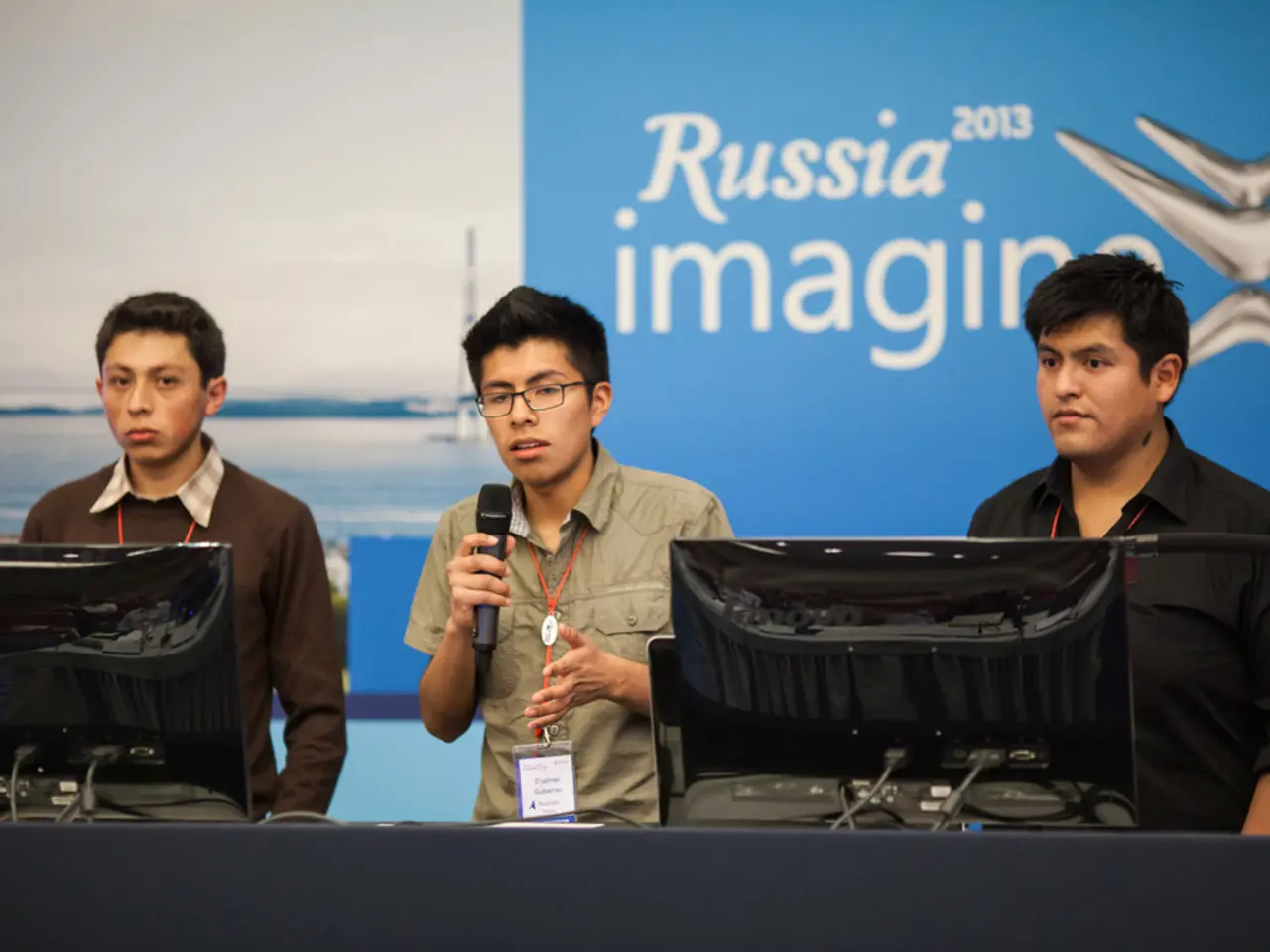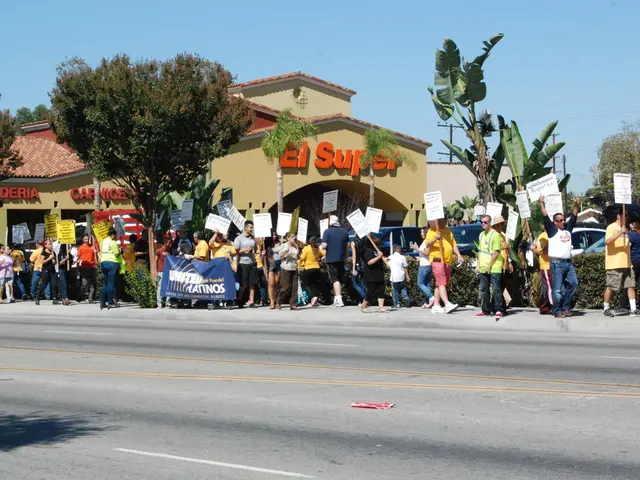EU intends to assert influence in US-Russia meeting
In the ongoing conflict in Donetsk, Ukraine, Russian forces have been unable to swiftly seize the remaining territory despite over a decade of fighting since 2014. The offensive has largely stalled, with Ukrainian forces maintaining significant resistance [1][3].
Russian President Vladimir Putin has claimed that Russia could seize all of Donetsk if desired, but this assertion is disputed by Ukraine's ongoing strong resistance and official assessments [1]. The Kremlin's broader objective, as stated by Russian Foreign Minister Sergey Lavrov, is political control over all of Ukraine rather than just territorial gains in Donetsk [2].
As the summit between Putin and US President Donald Trump approaches for Friday, it remains unclear whether Ukraine will take part in the meeting [5]. European leaders have appealed to Trump to defend their security interests, expressing concerns that Putin might secure favorable concessions and set the outlines of a peace deal without them [6].
Trump has stated that he wants to see whether Putin is serious about ending the war, now in its fourth year [7]. However, the stalled military situation in Donetsk suggests that any negotiation would involve complex considerations beyond immediate territorial control, including political demands and broader geopolitical objectives [1].
In recent diplomatic communications, Trump has cited Putin's assertions about Russia's military capability in Donetsk [1]. However, these claims do not reflect the battlefield realities, and the prolonged stalemate could complicate negotiations.
The loss of the strategic city of Pokrovsk could hand Russia an important battlefield victory ahead of the summit [8]. But Ukrainian President Volodymyr Zelenskiy has rejected the idea that Ukraine must commit to giving up land to secure a ceasefire [9]. Trump has also expressed disappointment to US allies in Europe by suggesting that Ukraine would have to give up some Russian-held territory [10].
In a statement, European leaders underlined the importance of respecting international law and maintaining the principles of independence, sovereignty, territorial integrity, and the inviolability of international borders [11]. They emphasized that a peaceful and lasting solution must be found through diplomatic means, not through force.
In conclusion, the stalled Russian offensive in Donetsk has left negotiations between Putin and Trump complicated. The military situation does not reflect Putin's claims about Russia's capability to seize all of Donetsk quickly, and any negotiation is likely to involve complex considerations beyond immediate territorial control. The loss of Pokrovsk could potentially provide Russia with a strategic advantage, but it remains to be seen how this will affect the negotiations.
War-and-conflicts continue to dominate general news as the stalled Russian offensive in Donetsk highlights the complexities of negotiations between Russian President Vladimir Putin and US President Donald Trump. Politics plays a significant role in determining the broader objectives of both leaders, with Russia aiming for political control over all of Ukraine, not just territorial gains in Donetsk.







